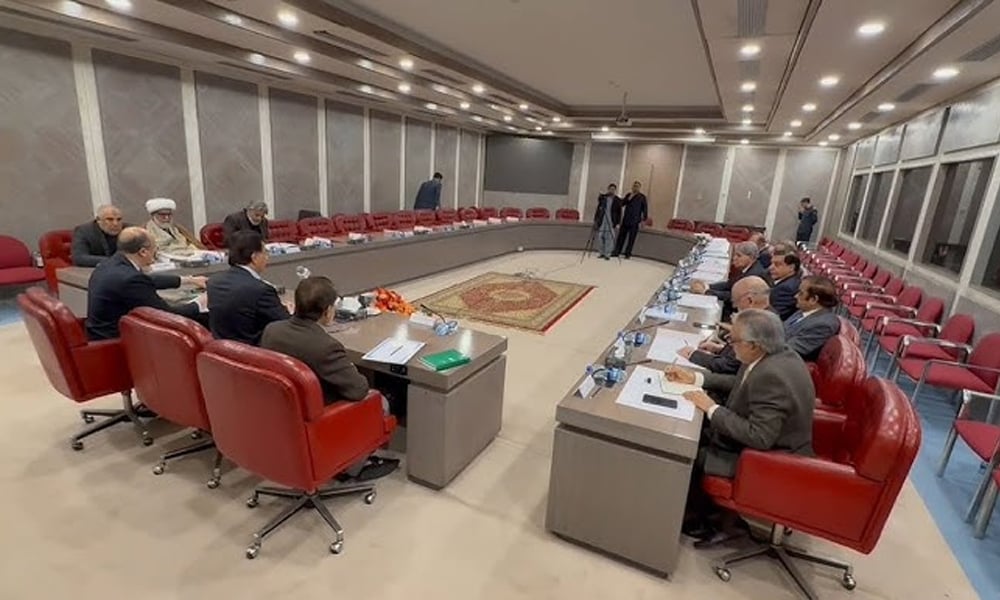The opposition has welcomed what it describes as a “positive approach” after attending the first round of talks with the government. In a move aimed at easing political tensions, the Pakistan Tehreek-e-Insaf (PTI) and the government have initiated negotiations, with Senator Irfan Siddiqui, a member of the government’s committee, confirming that they have agreed to consult PTI founder Imran Khan, who is currently incarcerated, before moving forward with the “charter of demand.”
The talks, which took place today at the Parliament House in Islamabad, have been hailed as a step toward a potential resolution of political disputes in the country. Senator Siddiqui, emphasized that the public desires peace, democratic values, and stability over anarchy and economic turmoil.
He also addressed the recent deferral of the verdict in the £190 million Al-Qadir Trust case involving Imran Khan and his wife, stating that the government has no involvement in judicial matters and that these issues are separate from the ongoing negotiations.
The next round of talks has been scheduled for January 2, with both committees agreeing that the discussions should continue behind closed doors and avoid public statements that could jeopardize the process. Senator Siddiqui noted that the PTI would present its demands in the form of a charter.
When asked about potential outcomes, he stated that the government could not provide any guarantees at this stage but emphasized that the government’s committee—composed of senior constitutional and legal experts—would carefully consider PTI’s demands once they are submitted.
Siddiqui further revealed that the PTI negotiation team appeared to be acting with the mandate of the former prime minister. “PTI requested a meeting with Imran Khan, which we have agreed to facilitate. We are open to establishing contact between the PTI team and Imran,” he added.
MWM Chief Praises Government’s Approach
Majlis Wahdat-e-Muslimeen (MWM) Chief Senator Raja Nasir Abbas, who also participated in the meeting, expressed optimism, noting that he saw “many positive things” in the dialogue process. He acknowledged the PTI founder’s initiative in forming a negotiation committee and criticized the government for delaying the formation of its own committee. Abbas stressed the importance of arranging a meeting between the PTI committee and Imran Khan, calling it a necessary step for a constructive approach from the government.
He urged the government to take full advantage of the ongoing dialogue to resolve the country’s political issues.
The meeting, held in a cooperative environment, marked a significant step forward in the government’s efforts to engage with the opposition. It was attended by Deputy Prime Minister Ishaq Dar, PM’s Adviser Rana Sanaullah, Senator Irfan Siddiqui, PPP leaders Raja Pervaiz Ashraf and Naveed Qamar, and MQM-P leader Farooq Sattar. The PTI delegation included former NA Speaker Asad Qaiser, Sunni Ittehad Council Chairman Sahibzada Hamid Raza, and MWM leader Allama Raja Nasir Abbas.
Other key members of the PTI team, such as Leader of Opposition in the National Assembly Omar Ayub, PTI General Secretary Salman Akram Raja, Khyber Pakhtunkhwa Chief Minister Ali Amin Khan Gandapur, and senior PTI leader Hamid Khan, were unable to attend but will be involved in future discussions. The PTI is expected to present its demands in writing at the next meeting.










